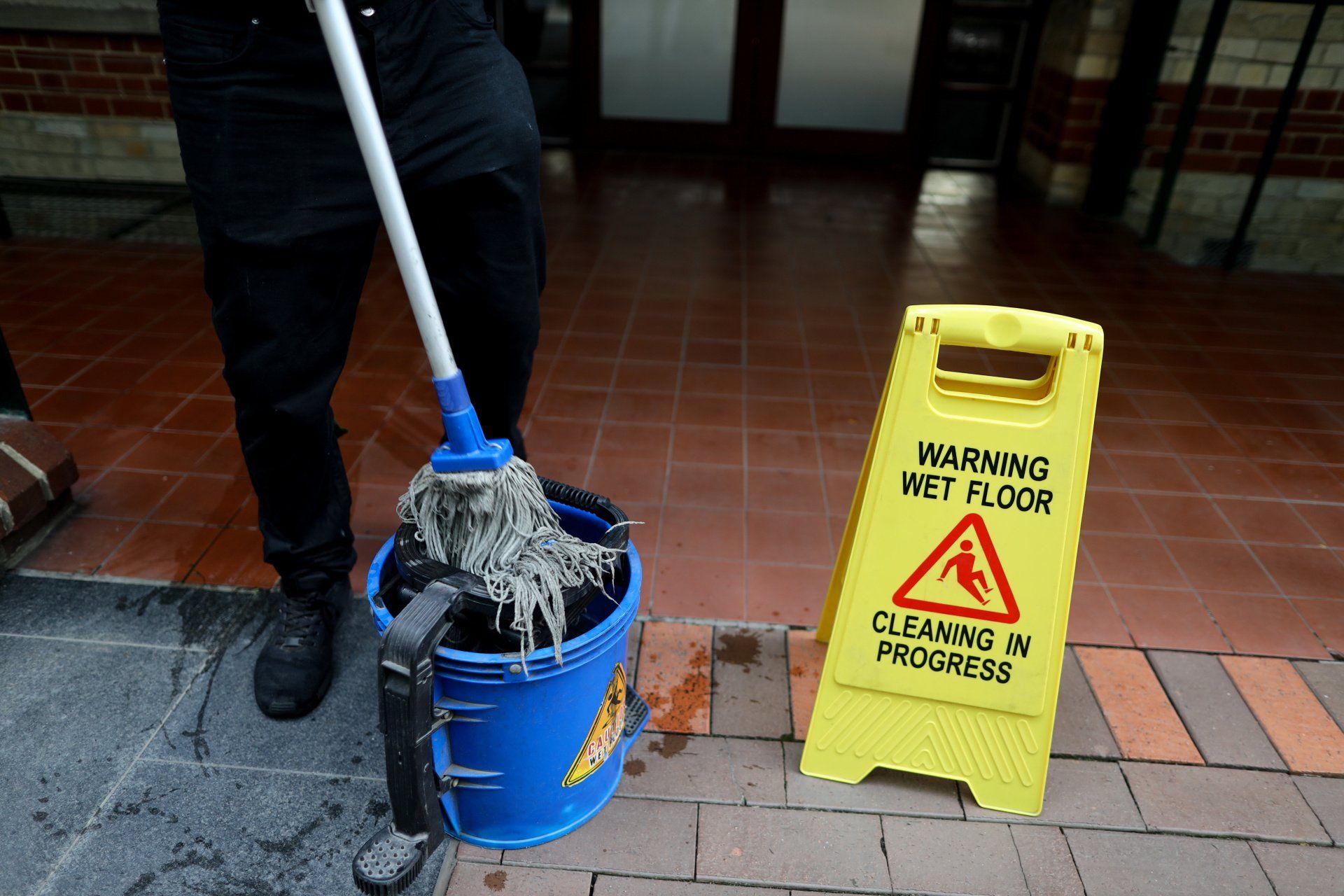Blog

Preventative measures and personal accountability are likely the strongest defenses against premises liability personal injury claims.
Common defenses in premises liability cases include things like:
- The owner didn’t know about the danger or could not have reasonably known
- The plaintiff was injured by an obvious hazard and is therefore responsible for their own injuries
- Someone committed an unforeseeable crime that resulted in an injury on your property (in negligent security premises liability cases)
- The property owner doesn’t personally have any control over hazards in the property (which is why it might be difficult to sue a property owner for hazards in a tenant’s retail store)
Limiting the Risk of Slip and Fall Lawsuits
Customers and employees in grocery stores and convenience stores sometimes drop items, which often results in slippery substances, puddles or broken glass on the ground. How you deal with those hazards defines how easy it is to defend yourself from a premises liability claim.
No business owner or manager is omnipotent, and that understanding is built into the law. Most premises liability cases hinge on what’s “reasonable.” If it’s not reasonable for you to have spotted and fixed a hazard prior to someone being injured, it will be more difficult for the injured person to hold you liable for their damages.
If someone drops a jar of pickles and then seconds later slips in the brine puddle they created, it might be hard for them to win a personal injury case against your business. The customer created the hazard, and it would be unreasonable for the store’s employees to spot the spill and clean it up in the mere seconds between when the spill occurred and when the fall occurred.
What Is and Isn’t a Defensible Wet Floor Case
Consider a situation where a customer drops a glass bottle of vodka in the liquor aisle of a grocery store. They’re embarrassed and are worried the employees of the store will make them pay for the broken bottle, so they hurry off without telling anyone.
A few minutes later an employee notices the broken bottle, or another customer informs an employee about the spill. What happens next might be vital to the defense of a related personal injury claim.
If the employee immediately puts up a wet floor sign, picks up the glass and cleans the floor, your store will likely be in the clear.
If the floor is still wet – and the wet floor sign is still there – and a shopper walks down the aisle and slips where the employee just mopped, it may be hard for that customer to successfully sue. If there was a clearly visible wet floor sign the court might rule that your business met its duty of care.
People have free will and they are expected to comport themselves with a degree of wherewithal. If someone clearly warned you a cliff was ahead and you walked off the cliff anyways, you’d be responsible for your own injuries.
The situation will be different if the employee picked up the wet floor sign after mopping even though the floor was still wet. Then the plaintiff could argue they weren’t warned the floor was slippery even though the store knew about hazard.
In the above scenario if the employee noticed the broken glass and spill but did nothing, or a customer warned the employees and they did nothing, the store might be liable for injuries that resulted. The employees:
- Knew there was a hazard
- Didn’t take steps to warn customers of the hazards
- Didn’t take steps to mitigate the danger in a reasonable amount of time
In many cases the best defense against premises liability lawsuits is good management, good training, hiring accountable workers and being a vigilant business owner.
If a customer or tenant warns you of a hazard on your property, immediately put up a warning sign and take steps to rectify the hazard. A warning sign on its own might be enough to shield you from liability in some situations as long as it’s obvious and clearly visible.
Get Help With Your Premises Liability Defense in Atlanta
Is your business being targeted by someone claiming they were injured on your property or in your store? Your business or property liability insurance company will likely foot the bill for your defense, but there can be downsides to relying entirely on your insurance company to defend you.
There are scenarios where what’s in your best interest as the policyholder might not align with what’s in your insurance company’s best interest. If you want to ensure you have input and control over how a case against your store is handled, consider contacting your own premises liability defense attorney.
Edwards & Hawkins is committed to doing what’s in the best interest of our business clients. We’ll independently examine the situation and provide frank, honest advice on how you can proceed.
Call us at (404) 526-8866 for a free consultation.











